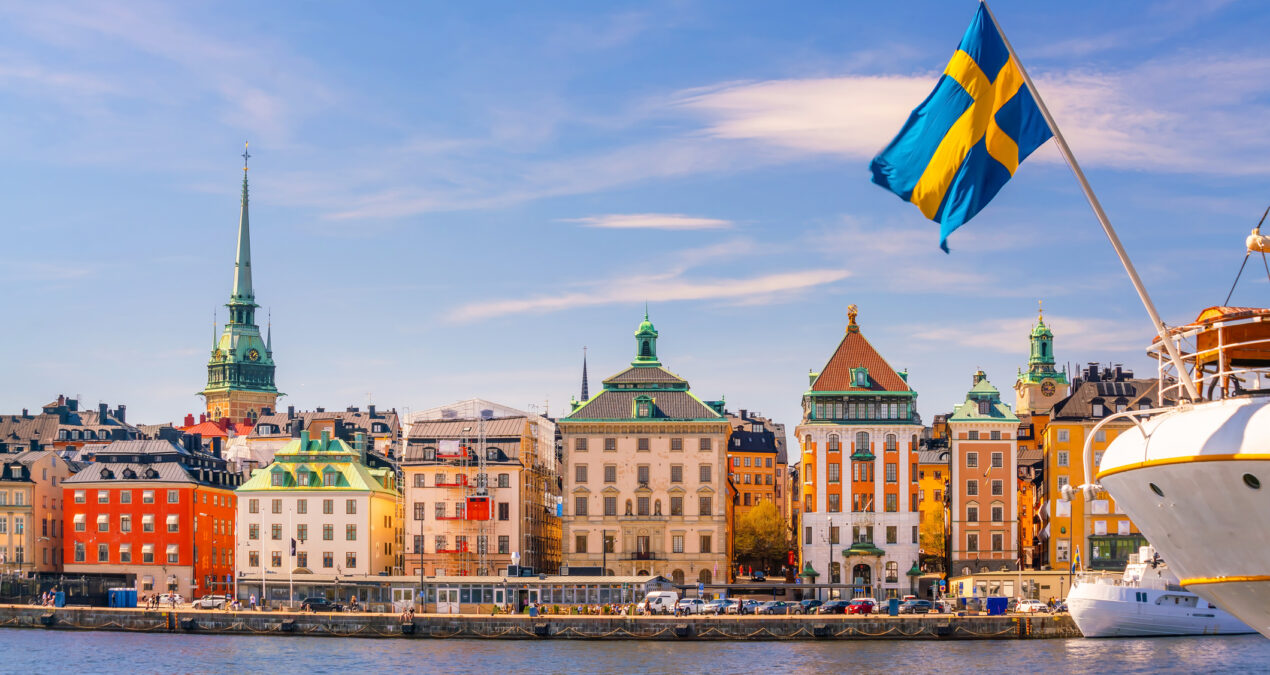How can a small country like Sweden make a difference in the global mission of combating climate change? Why has Sweden chosen the transport sector as its only sector target? Why is combating climate change equal to economic growth and a stabile labour market? Will we fail?
Read the full article (Illuminem jan 2023) here.
After the Paris Agreement, Sweden needed to update its climate targets. A government-initiated commission was launched, formed by representatives for the seven out of the parliament’s eight parties that had shown an interest in climate issues. Their first task was to quantify Sweden’s share of global greenhouse gas emissions.
With 0.15 percent of global emissions, it would be easy to argue that what Sweden does, has little or no impact on the global climate. Even adding the impact of consumption – goods produced elsewhere but used in Sweden – the impact stays at 0.3 percent. However, the seven parties agreed that with such a small part of the global emissions, Sweden’s only way to be truly relevant in combating climate change would be as a role model for others; a permanent exhibition for climate friendly solutions or a global climate helpdesk.
The world’s most stringent climate target were thus approved by the Swedish Parliament in June 2016; net zero by 2045 which means at least an 85 percent emissions reduction in Sweden compared to 1990, with up to 15 percent reductions elsewhere, but financed by Sweden. Until 2030, emissions are to be reduced by 63 percent.
In the process leading up to the legislation, many sectorial targets were discussed. However, the Parliamentarians agreed that sectorial targets reduce the liberty of how to reach the overarching targets, thus increasing the cost or reducing the ambitions. Thus, the Swedish Climate Act only has one sectorial target; a 70 percent emissions reduction between 2010 and 2030 in the transport sector – a “Fossil-independent transport sector”.
When climate targets are illustrated, it is often with a new electric car. But what makes the Swedish target unique, is that it is not only about electromobility, not only about cars, and not only about new vehicles. It’s about all ground transport – and the demanding target cannot be met by only going for one solution.
On September 11th, Sweden held national elections and after intense negotiations a three-party, conservative minority government was installed, supported by the nationalistic Sweden Democrat which is the largest party in the coalition and the only of them to gain seats in the election.
Whilst the government parties adhere to the Swedish climate targets, the Sweden Democrats do not, and the coalition agreement and first budget mostly contain policy changes that make reaching the climate targets increasingly doubtful. In fact, the Swedish EPA states that with the new government’s policies, the 2030-target will not be met.
Being a small and export-oriented country, Sweden’s business community is very important for the welfare of the country and politicians will typically ensure that policies are aligned with corporate needs. In recent years, and especially around the last election, there has been a paramount change in the industry message to politics. A wide industry coalition is now calling for the reduction quota not to be reduced, for subsidies to be given directly to suffering households and companies rather than through the lowering of fuel prices and more generally for the long-term decisions previously decided upon to be kept and delivered upon.
It is in this context that the Swedish 2030-target and the seven party-agreement behind it is to be seen; it is an unique opportunity to create jobs and strengthen the industry, and it is this tiny country’s one opportunity to be of global relevance in the issue that matters the most for our common future.
In the full version of this article published by Illuminem (January 2023), we walk you through the Swedish 2030-target, the change of guards and what can turn us back up again on the climate roadmap.

MATTIAS GOLDMANN
2030-sekretariatet

